California, the biggest incubator of creative business ventures, has produced a modest proposal with great potential. A company called Prolacta Bioscience has opened America’s first large-scale breast milk processing plant, according to a Los Angeles newspaper.
The Monrovia facility will commercialise donated breast milk after passing it through scientific testing, pasteurisation, formulation and filling processes.
It will initially target the neonatal intensive care units treating low birth-weight babies, who weigh less than 2 pounds, 3 ounces. Dr Elena Medo, chief executive and founder of Prolacta Bioscience, hailed the new era in the care of premature and under-weight babies.
She pointed out that human milk has 100,000 different components and we only really know what a few thousand of them are and what they do.
Breast milk helps the premature infants to maintain their pH level and avoid colitis and sepsis, which attack the gastrointestinal tract, she said.
The developing countries once knew that breast is best when it comes to feeding babies but that traditional knowledge was undermined by the massive ad campaigns for the baby food manufacturers who started out in the west.
Venture capitalists may line up at the door of Dr Medo since the west is now discovering the properties of breast milk. They have seen how herbal medicines from the east have captured a huge market.
Some American mothers have gone to court to fight for their right to breast feed babies in public places.
The small start-up in California has also been working on therapies based on human milk. After meeting the demand from underweight babies, it will turn its attention to babies with heart defects who need surgery and are at risk of infection.
The next market will be children with cancer and those undergoing chemotherapy who suffer upset stomachs. The company will not pursue the adult market.
Dr Medo’s scientific credentials have not impressed breast milk donor organisations. The non-profit Human Milk Banking Association of North America questioned the practice of buying and selling human milk as a commodity. It said the profit motive might pressure women to sell their milk at the cost of their own babies.
More..... http://www.deccanherald.com/deccanherald/a...03753200586.asp
The Monrovia facility will commercialise donated breast milk after passing it through scientific testing, pasteurisation, formulation and filling processes.
It will initially target the neonatal intensive care units treating low birth-weight babies, who weigh less than 2 pounds, 3 ounces. Dr Elena Medo, chief executive and founder of Prolacta Bioscience, hailed the new era in the care of premature and under-weight babies.
She pointed out that human milk has 100,000 different components and we only really know what a few thousand of them are and what they do.
Breast milk helps the premature infants to maintain their pH level and avoid colitis and sepsis, which attack the gastrointestinal tract, she said.
The developing countries once knew that breast is best when it comes to feeding babies but that traditional knowledge was undermined by the massive ad campaigns for the baby food manufacturers who started out in the west.
Venture capitalists may line up at the door of Dr Medo since the west is now discovering the properties of breast milk. They have seen how herbal medicines from the east have captured a huge market.
Some American mothers have gone to court to fight for their right to breast feed babies in public places.
The small start-up in California has also been working on therapies based on human milk. After meeting the demand from underweight babies, it will turn its attention to babies with heart defects who need surgery and are at risk of infection.
The next market will be children with cancer and those undergoing chemotherapy who suffer upset stomachs. The company will not pursue the adult market.
Dr Medo’s scientific credentials have not impressed breast milk donor organisations. The non-profit Human Milk Banking Association of North America questioned the practice of buying and selling human milk as a commodity. It said the profit motive might pressure women to sell their milk at the cost of their own babies.
More..... http://www.deccanherald.com/deccanherald/a...03753200586.asp
